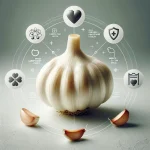In an era where cancer constitutes a global health crisis with countless new diagnoses each year, it’s increasingly evident that beyond genetic predisposition and environmental triggers, the power of lifestyle modification stands as a potent force in diminishing cancer risk. This discourse ventures into essential lifestyle alterations individuals can embrace to mitigate their vulnerability to this widespread ailment.
1. Elevating Nutritional Well-being
The bond between dietary habits and cancer susceptibility has been a focal point of nutritional science, advocating for a diet enriched with fruits, vegetables, whole grains, and lean proteins to fortify the body’s defense mechanisms against cancer:
- Vegetal Emphasis: Prioritizing a diet laden with fruits, vegetables, and whole grains delivers vital nutrients and antioxidants, serving as a shield against carcinogenic agents.
- Rethinking Meat Consumption: Observational studies have illuminated the correlation between excessive intake of processed and red meats and the escalated risk of colorectal cancer, recommending a pivot towards leaner proteins such as poultry, fish, and vegetarian alternatives.
- Moderating Alcohol Consumption: The nexus between alcohol use and an amplified risk of diverse cancers necessitates moderation, with abstinence presenting as an optimal choice for those aiming to minimize risk.
2. Sustaining a Balanced Physique and Active Regimen
Obesity’s linkage to an array of cancers underscores the criticality of marrying a nutritious diet with consistent physical activity for effective weight management:
- Commitment to Physical Activity: Engaging in at least 150 minutes of moderate or 75 minutes of vigorous aerobic exercises weekly, as per health guidelines, is essential.
- Harmonizing Body Weight: Pursuing a healthy weight through dietary mindfulness and physical activity is pivotal, necessitating adjustments based on individual health objectives.
3. Steering Clear of Tobacco and Alcohol
The unequivocal link between tobacco usage and cancer, rendering it the most significant preventable cancer risk, highlights the urgency of avoidance or cessation:
- Tobacco Abstinence: This encompasses refraining from all forms of tobacco, including cigarettes, cigars, pipes, and smokeless tobacco.
- Alcohol Limitation: Echoing previous sentiments, alcohol consumption should be practiced with restraint or not at all to mitigate cancer risk.
4. Safeguarding Skin Health
Given skin cancer’s prevalence yet preventability, adopting protective measures against UV exposure is paramount:
- Adopting Sun Safety Measures: Utilizing broad-spectrum sunscreen, donning protective attire, and seeking shade during peak UV hours are advisable strategies.
- Shunning Tanning Beds: The carcinogenic UV radiation from tanning beds is a recognized risk factor for skin cancer and warrants avoidance.
5. Emphasizing Early Detection Through Screenings
The significance of early cancer detection via regular screenings and self-examinations cannot be overstated, enhancing the efficacy of treatment and outcomes:
- Understanding Genetic History: Awareness of familial cancer patterns can inform personalized screening approaches.
- Vigilance Through Self-Exams: Acquainting oneself with one’s body to identify potential anomalies early, such as skin changes or unusual lumps, is crucial.
Epilogue
While the complete prevention of cancer remains an elusive goal, the strategic adoption of these lifestyle modifications offers a viable pathway to significantly curtail cancer risk. Concentrating on dietary improvements, maintaining an active lifestyle, eschewing carcinogens, practicing diligent sun protection, and adhering to regular screening schedules empower individuals to proactively safeguard their health. This holistic embrace of lifestyle change not only lowers cancer risk but also enhances overall vitality, highlighting the indispensable role of lifestyle choices in disease prevention and health optimization.







